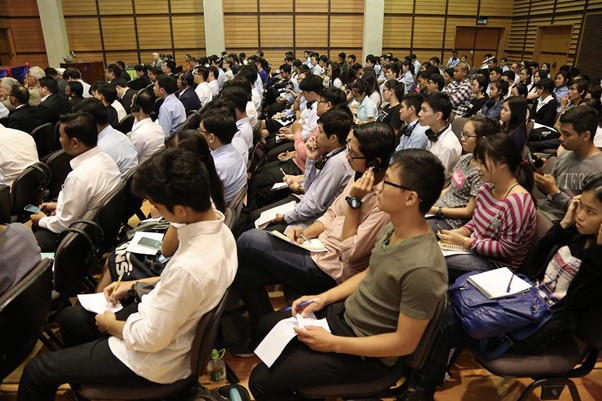분류 [Humanities] Domestic public opinion shapes the credibility of alignment commitments amid US-China strategic competition
- NO
- 405955
- Date
- 2025-05-07
- Modify Date
- 2025-05-07
- Writer
- 연구기획관리과 (032-835-9322~5)
- Count
- 21
Researchers from Incheon National University Unpack Audience Costs in US Allies’ Foreign Policy Choices
Domestic public opinion shapes the credibility of alignment commitments amid US-China strategic competition
Researchers at Incheon National University explored how domestic public opinion influences foreign policy alignment decisions among U.S. allies during great power competition. Using a survey experiment centered on South Korea’s potential Quad membership, they found that leaders face audience costs when reversing alignment commitments, particularly from pro-U.S. constituents. The study highlights how shifting public preferences can strengthen or weaken alignment credibility in international politics.

Image title: Foreign Policy at a Crossroads: How impactful are public opinions?
Image caption: INU study shows how public opinion influences US allies’ foreign policy choices amid rising tensions between the US and China.
Image credits: USEmbassyPhnomPenh from Openverse
Image source link: https://openverse.org/image/ec3e294b-826f-430a-89e7-e1c54f812ca0?q=foreign+policy+Asian&p=200
License type: CC BY-ND 2.0
Usage restrictions: Credit must be given to the creator. No derivatives or adaptations of the work are permitted.
In an era marked by rising strategic rivalry between the United States and China, allied democracies face increasingly complex foreign policy decisions. While many of these nations depend on U.S. military protection, they also rely heavily on China for economic growth—making alignment decisions a matter not only of international strategy, but also domestic political pressure.
To explore this tension, a team of researchers from Incheon National University, led by Assistant Professor Kyung Suk Lee, conducted a comprehensive study on how audience costs—political consequences for leaders who reverse public commitments—shape foreign policy choices. The study was published in the journal Contemporary Security Policy on March 20, 2025.
“Our research offers groundbreaking insights into how audience costs significantly affect US allies' foreign policy decisions amid US-China strategic competition, explaining both their initial hesitation to make clear alignment choices (strategic hedging) and the credibility of their commitments once made,” explains Dr. Lee, the lead author of the study.
The researchers used a national survey experiment focused on South Korea’s debate over joining the Quad, a U.S.-led strategic group. Their approach assessed how the public responds to leaders’ foreign policy reversals, revealing that leaders face substantial domestic backlash when they renege on prior alignment decisions—especially among citizens with strong pro-U.S. views.
The study found that over 90% of respondents viewed the alliance with the United States as vital to South Korea’s national security, economy, and global standing. This public sentiment increases the political cost of foreign policy inconsistency and discourages leaders from shifting course once alignment decisions are declared.
“This suggests that prevailing pro-US sentiment among US allies enhances the credibility of their alignment commitments,” said Dr. Lee. “Though shifting domestic preferences toward China could potentially incentivize them to reverse these commitments.”
Importantly, the study highlights how these audience costs are not uniform. Citizens who lean toward China tend to tolerate—or even reward—alignment reversals, whereas those aligned with the U.S. strongly oppose them. This variation creates a complex domestic landscape in which leaders must carefully gauge public sentiment before committing to a side.
“U.S. strategists competing with China for influence might recognize that focusing on public opinion in allied nations is vital,” Dr. Lee notes.
As power dynamics evolve in the Indo-Pacific and beyond, the study points to a critical insight: in democratic allies, foreign policy alignment is ultimately shaped not just by strategic logic—but by the will of the people.
Reference
|
Authors: |
Kyung Suk Lee1, Hankyeul Yang2, and Daekwon Son3 |
|
Title of original paper: |
US allies’ foreign policy alignment in an era of great power competition: An analysis of domestic politics |
|
Journal: |
Contemporary Security Policy |
|
DOI: |
|
|
Affiliations: |
1Department of Political Science and International Studies, Incheon National University, Incheon, South Korea 2Department of Political Science, Texas A&M University, College Station, TX, USA 3Graduate School of International Studies, Sogang University, Seoul, South Korea |
About Incheon National University
Incheon National University (INU) is a comprehensive, student-focused university. It was founded in 1979 and given university status in 1988. One of the largest universities in South Korea, it houses nearly 14,000 students and 500 faculty members. In 2010, INU merged with Incheon City College to expand capacity and open more curricula. With its commitment to academic excellence and an unrelenting devotion to innovative research, INU offers its students real-world internship experiences. INU not only focuses on studying and learning but also strives to provide a supportive environment for students to follow their passion, grow, and, as their slogan says, be INspired.
Website: http://www.inu.ac.kr/mbshome/mbs/inuengl/index.html
About Assistant Professor Kyung Suk Lee
Dr. Kyung Suk Lee is an Assistant Professor in the Department of Political Science and International Studies at Incheon National University, South Korea. He earned his Ph.D. in Political Science from Texas A&M University. His research interests include international security, alliance politics, nuclear issues, and public and elite opinion on global affairs. His work has been published in top peer-reviewed journals such as Contemporary Security Policy and International Studies Quarterly. Prior to joining Incheon National University, he was a research associate at the Korea Institute for National Unification and a Korea Foundation fellow at Pacific Forum CSIS.